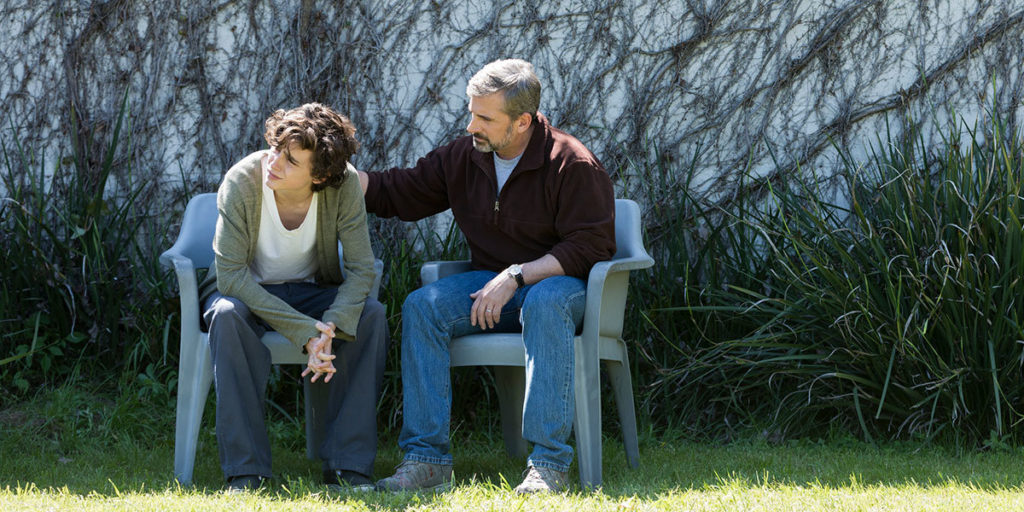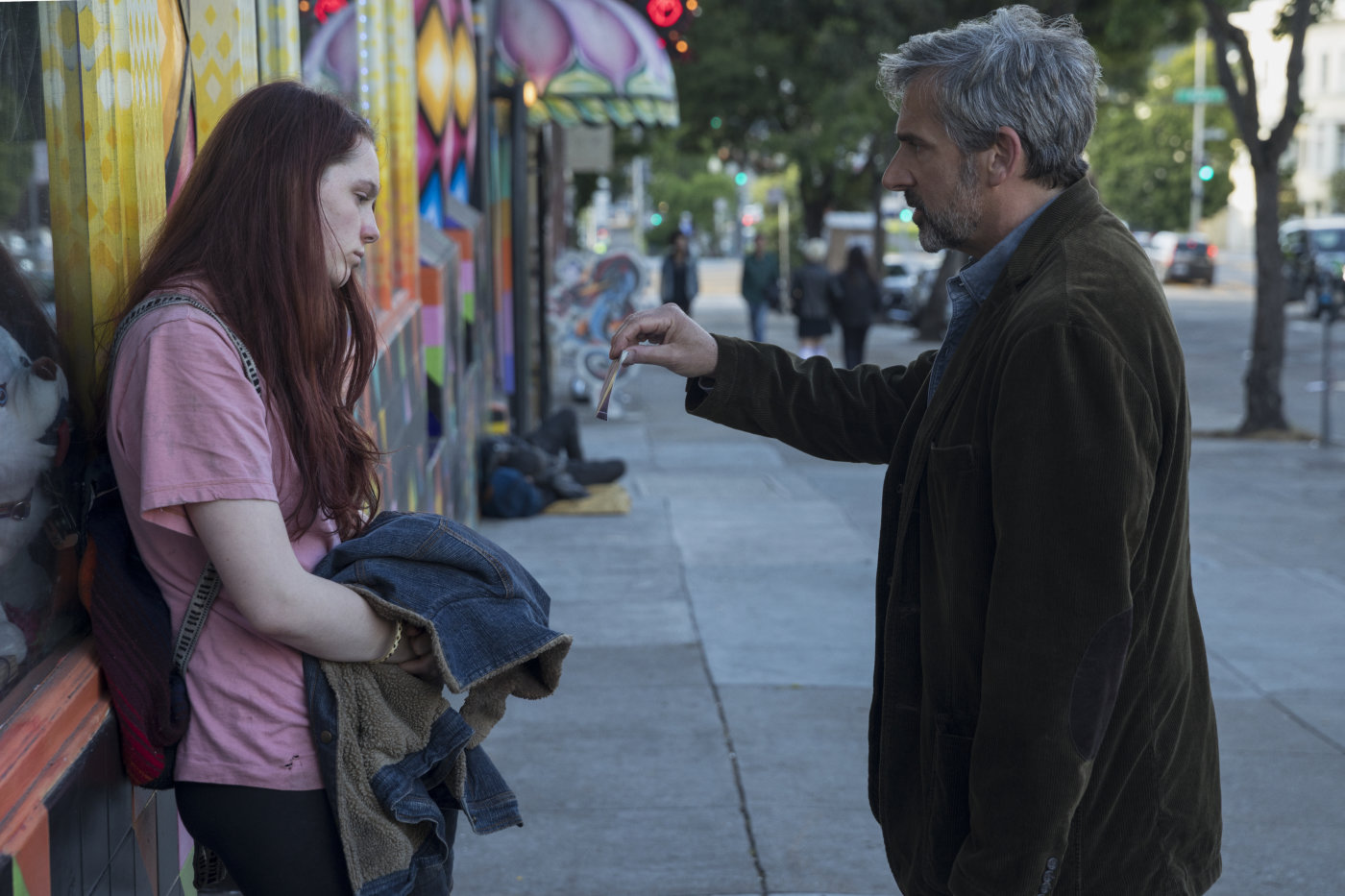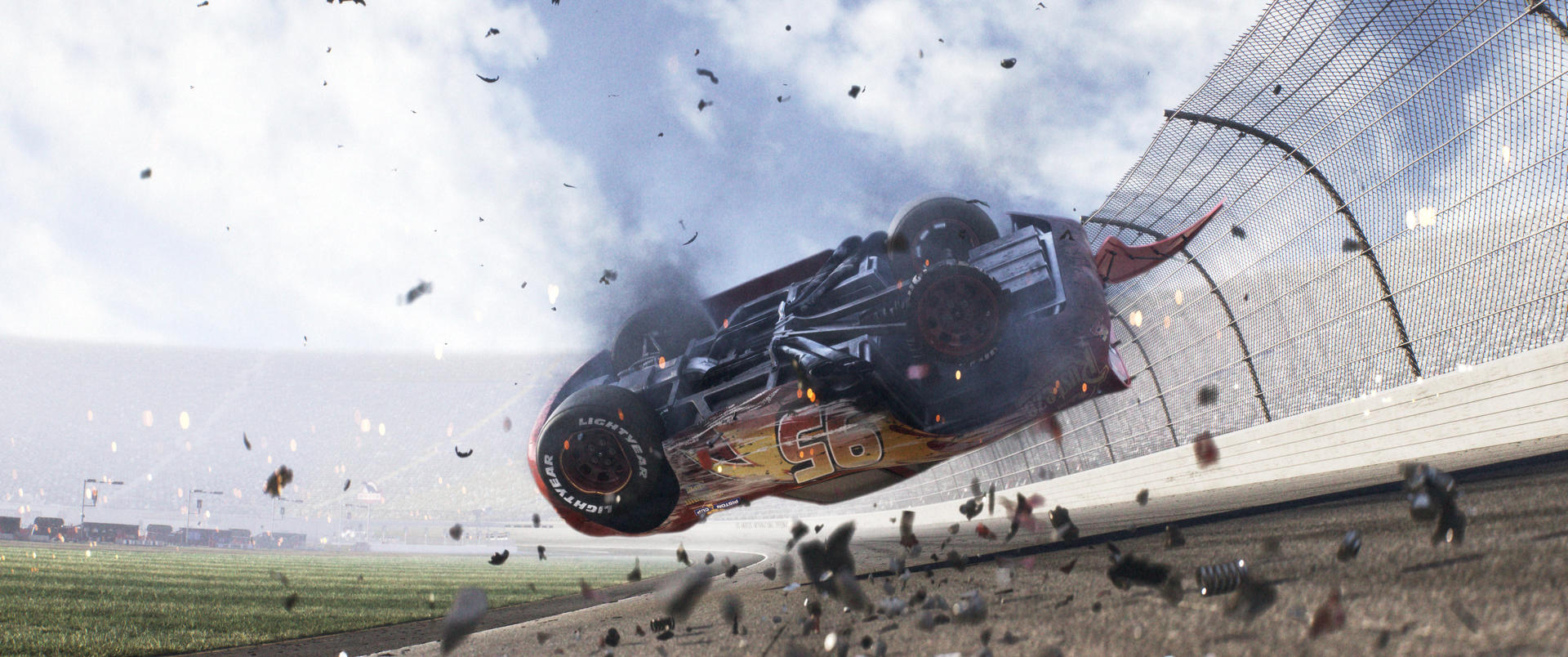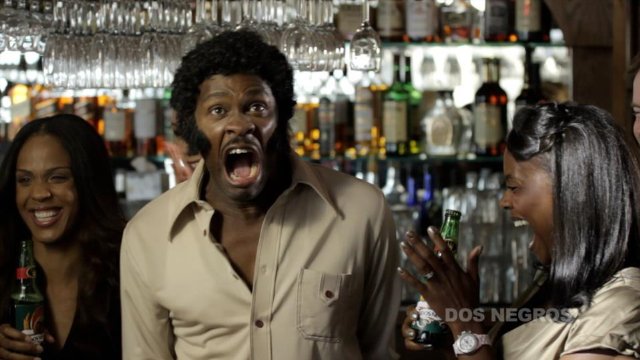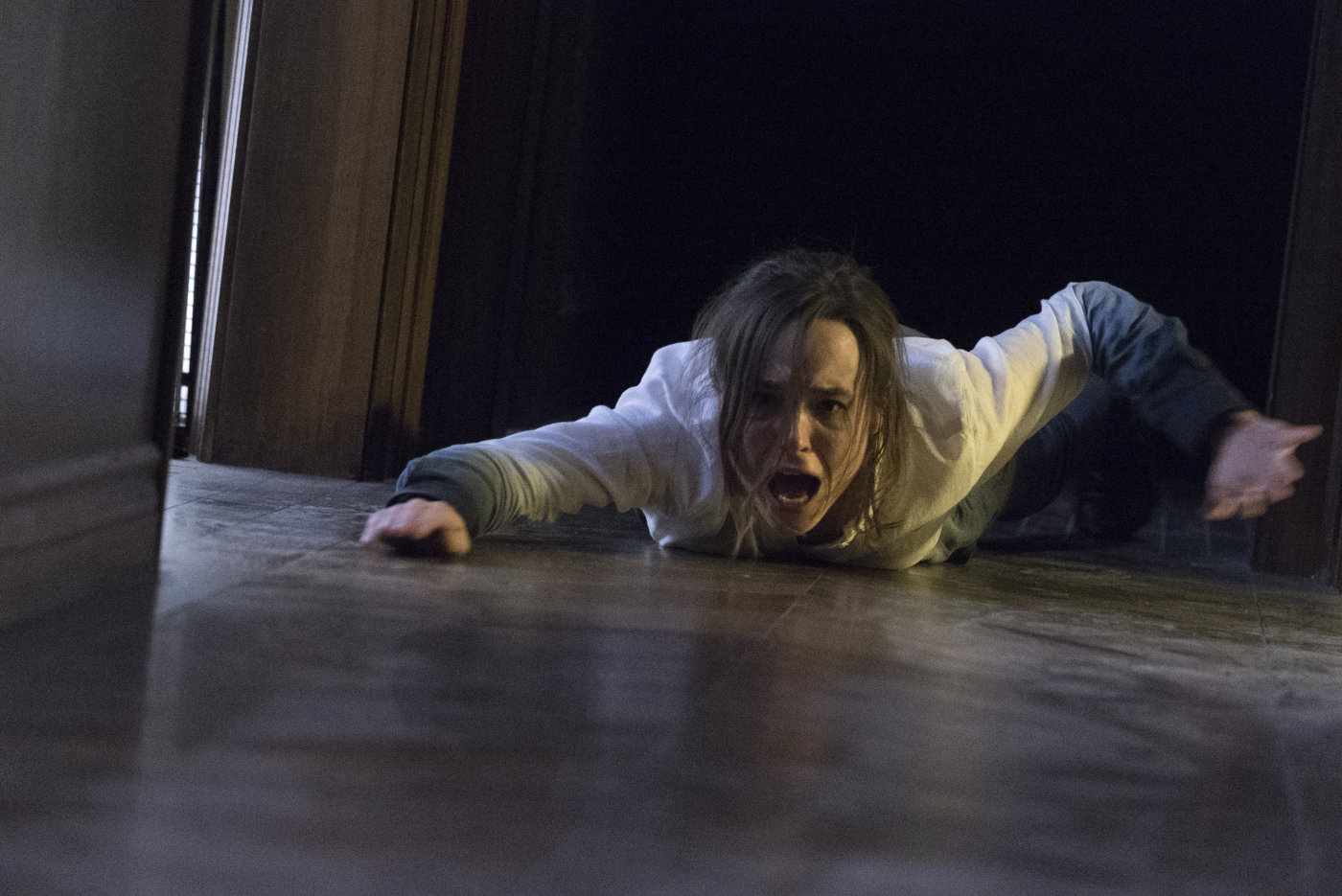For a film about addiction, the focus of Beautiful Boy is entirely on parenting. We know this when the film begins. David Sheff (Steve Carell) has given up his syndicated writer street cred in lieu of answers. He doesn’t need to research an article for public consumption; he needs to know what to do with his son, Nic (Timothée Chalamet), who is addicted to crystal meth. There’s an unseen and unaddressed panic that comes with the research: this could happen to you.
The film then backtracks a year to show us how we got to where we are. Unfortunately, skipping time lines without explanation is one of Beautiful Boy’s problems; we kinda have to guess from hairstyles and context how far gone Nic is at any given point in the narration. Another problem the film has is that the ravages of having a body addicted to drugs are not immediately apparent from scene-to-scene. Perhaps this is the benefit of youth or perhaps this is a “comforting” message — that it takes years of abuse to envision distinct physiological changes. In either case, the timeline skipping doesn’t help. One scene will have the successful high school kid playfully trying share a joint with his dad. Where’d he get the joint? Who knows. In the next, Nic is sabotaging relationships for his next fix. I think these are different stages of dependency.
There’s a point at which you realize this film has left all attempts to entertain at the curbside and has gone completely to the instructional: This is what it’s like when your kid is on drugs. These are your options. This is what you’ll probably do about it. This is where you’ll end up no matter what you do. It’s scary. It’s painful. And it is helpful from the POV of unfiltered realism. I can’t call Beautiful Boy necessarily “entertaining” by any stretch, but it is certainly among the most memorable films of the year.
Films like Beautiful Boy, Requiem for a Dream, Leaving Las Vegas, Drugstore Cowboy, etc. tend to paint themselves into a corner (into a coroner?) in that what we end up rooting for as the audience is the exact absence of plot. You see the problem immediately, no? If we want Nic to survive, thrive, and join the human race again, he has to have zero adventures. When the subject of the film has zero adventures, the film becomes awfully dull. I think that’s why writer/director Felix van Groeningen chose to focus on dad. David can always have strife in his life whether Nic is clean or not. We can see him worry until the cows come home and start up their own blunt farm. In the mean time, he can battle his current wife (Maura Tierney) over both the kid on drugs and the ones not on drugs, and we can all wonder how a guy who writes a bi-monthly article for Rolling Stone can afford and nice house in Marin, a five-person family, and drug rehab facility expenses. Rolling Stone must pay really, really well.
How is it that we are so reluctant to place a film like this in the “horror” genre? Is this not horror? This is the most frightening film I’ve encountered all year. Is the horror label reserved exclusively for the supernatural or the extreme? Does it not count if it there’s more than a miniscule chance of it happening? When does horror officially turn to drama? All I know is, like it or not, this is the future for many parents out there, some I might even know. I hope to God one of them doesn’t look me in the mirror.
A puzzle for the a genre explorer
Is blood a necessary restorer?
You can keep your Mike Myers
And Jason-lit fires
For me, addiction is the essence of horror
Rated R, 120 Minutes
Director: Felix van Groeningen
Writer: Luke Davies and Felix van Groeningen
Genre: Real life horror
Type of being most likely to enjoy this film: Concerned parents
Type of being least likely to enjoy this film: Horrified parents
